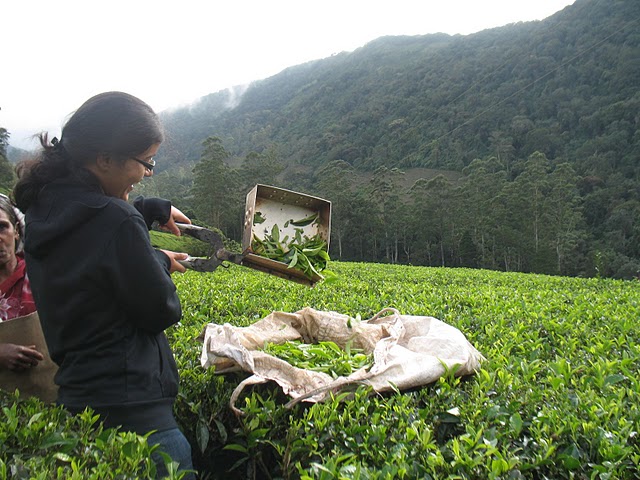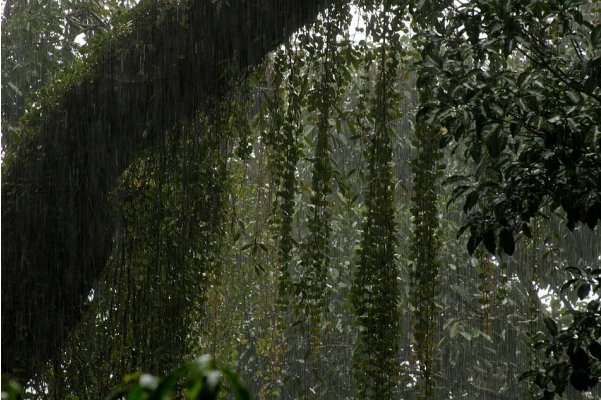
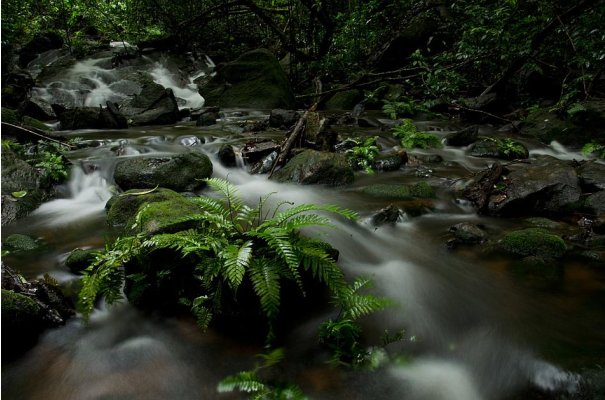
Soaking wet by now, finding a dry corner of my t-shirt to wipe my lens clean was nothing more than a dream. My knees were muddy from kneeling to take eye-level shots. I’d found a couple of leeches on
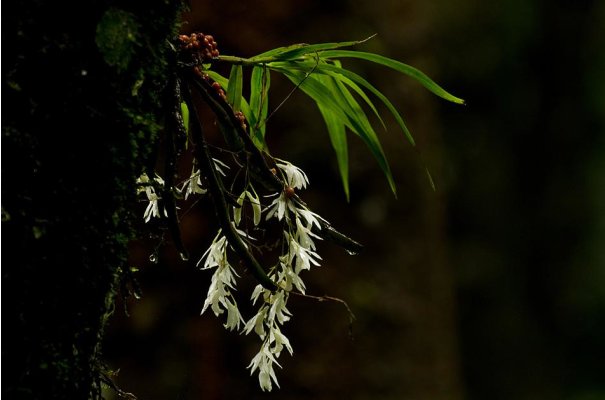
Light was low and photography in that rain was a prayer. But for me, the quest for tack-sharp images respectfully retreated behind the grand drama of green that surrounded me. The dark of the
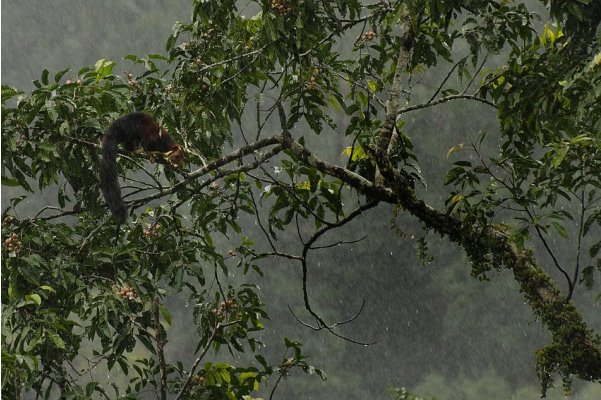
It was the paradise I’d imagined and longed to walk through. Vazhachal is a primary forest, albeit logged, and the trees were old growth. Electric transmission lines scarred the landscape at regular
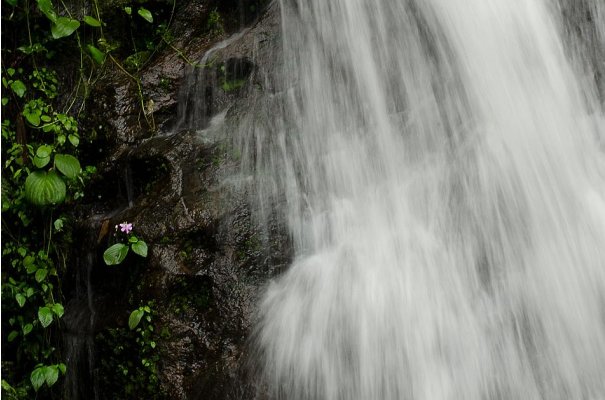
And then there were the impatiens – little pink, fuchsia and white flowers that grow on wet rock. Whole beds, small clumps, and lone sentinels bending and twisting but holding their own under
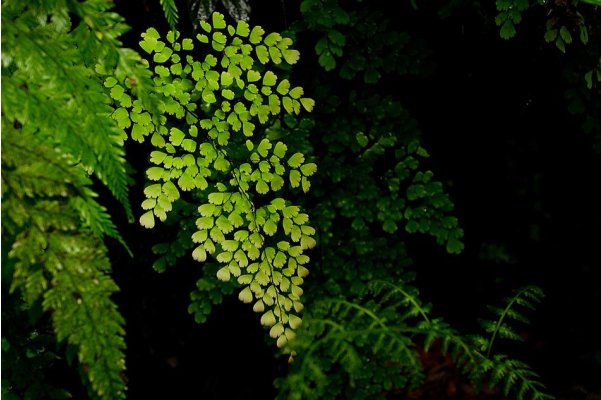
Banks rose from the sides of the road, covered in roots and ferns, fungi and moss. Rock-faces seemed to melt into rivulets as water seeped through and over them. Boughs and lianas were smothered in
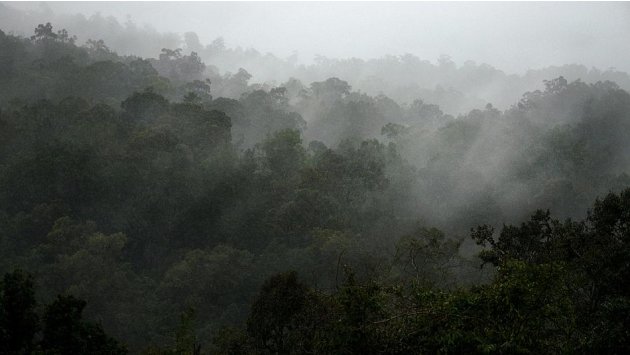
Vazhachal Reserved Forest unfurled in front of us – wet, evergreen, wonderful and, as beautiful things go, fragile. The windshield wipers were ineffective at times and the going was slow. Which was as
If you're looking for a quiet escape to untouched, pristine lands, less of which seem to be remaining every day, then Meghamalai's your answer. Tucked away in the clouds of the Western Ghats, this little-accessible mountain range offers gorgeous views of lush green mountains, dense forests, teal lakes and, above all, peace.
Meghamalai, also called the High Wavy Mountains, is located on the Kerala-Tamil Nadu border and can be reached by road from Theni via Chinnamanur, the nearest town. The drive can be a little unsettling on the narrow, winding, muddy path which shows little sign of human activity; it took us almost half a day to traverse the last 40 km of the road. The climb is exhilaratingly steep, with a view of the peaceful Manalar Dam nestling in the valley. The kachcha road then leads to a tar road at the beginning of a sprawling 6,000-acre tea plantation which houses two large, spacious bungalows run by the Woodbriar Group. Scrumptious food and the sounds of birds greeted us at the Sand River Cottage.
We soaked in the warm hospitality and the cool mountain climate. Mornings at the cottage were spent in an almost meditative state watching layers of clouds play hide-and-seek with the peaks. A visit to the WoodBriar Tea Factory took us through a behind-the-scenes journey of the fascinating processes that go into the making of our morning beverage. We drove up to Vattaparai in Upper Manalar, famous for its animal sightings, but the clear morning was wrapped in thick fog within minutes, forcing us to go back. Cloud Mountain does live up to its name!
One afternoon, a plantation worker came running into the bungalow, saying he saw a group of elephants nearby. We set off in the car and after some time, the driver stopped abruptly.
"What happened?" I asked, and was much amused by his embarrassed reply: "Elephant doing bathroom!"
He pointed to a large dung pile that lay on the road. We got out of the car and walked some distance. Hiding behind the tea bushes we spotted a family of elephants, complete with grandparents and kids, walking in the forest. We made our way back to the car in awed silence and on the way, spotted a bison in the distance and found (much to my delight) tiger scat on the path. I even picked up a porcupine quill.
Long drives in and around Meghamalai are beautiful, with the view alternating between dark-leaved woods and light-green plantations. If you're lucky, you can spot some rare wildlife like the Grizzled Giant Squirrel and the Great Indian Hornbill. These mountains are also home to the one of the world's rarest bats, the Salim Ali's Fruit Bat. From the Maharaja Mettu View Point, one can get a panaromic view of the hills, extending all the way to the plains. The misty mountains of Meghamalai are something out of a fairytale. They invite you to walk, trek, breathe, disconnect, relax and experience a bit of almost tangible transcendence

